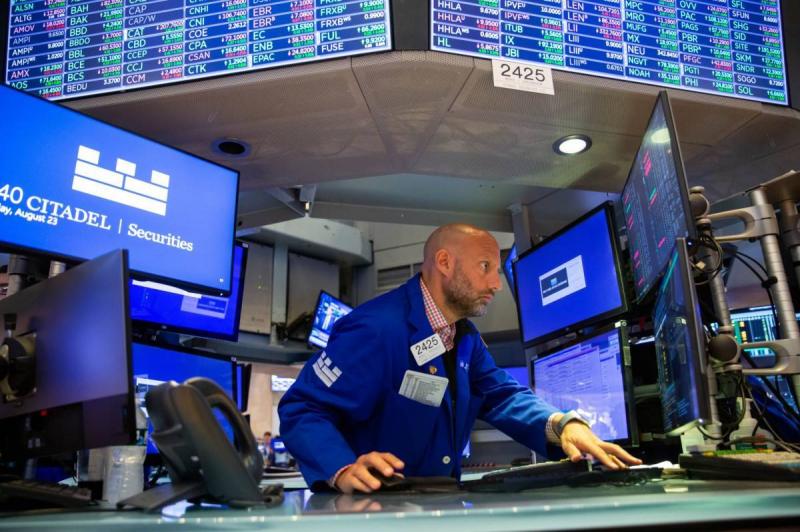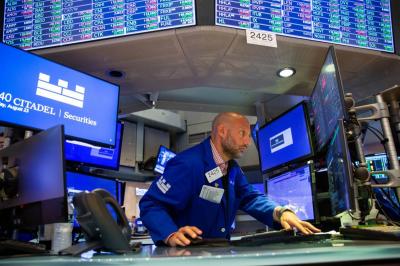For about ten days, financial markets seemed on the edge of a cliff, shaken by the insidious spread of the Delta variant combined with the stagnation of economic recovery. However, the S&P 500 index recorded a series of record highs a few days later. The tremors and uncertainty worry even market professionals, but for independent investors, they are nerve-wracking, especially as around 15% of them have only been investing for a year. The question that unprofessional investors seek an answer to is whether it is more beneficial to hold steady or safer to flee when the market skies cloud over.
If progressing toward future goals like retirement is one of your top priorities, there are several strategies you can use to protect yourself from the repercussions of market downturns while maintaining the principles of long-term wealth accumulation. The guiding principle for any successful long-term investor is the old adage: "Time in the market, not timing the market." You can't accumulate impressive investment gains without remaining invested. Trying to pick market tops or bottoms is foolhardy.
In practice, this means noticing that market recoveries have typically come swiftly after periods of widespread sell-offs throughout the years, despite their brutality. The emergence of the pandemic in March 2020 caused the MSCI World Index to retreat by over 35%, but it had rebounded to a new record high by August of that year, climbing an additional 28% since then. Selling when the market was at its lowest would have been a grave mistake, leaving you with half the wealth you would have achieved today had you not sold.
**Diversification Shield**
Of course, there is no guarantee of recovery after a crash. This leads us to the second principle of investing: diversification. The Petersburg Stock Exchange was completely wiped out after the Russian Revolution in 1917. More than seventy years later, Japan’s Nikkei 225 index ended the 1980s on an enthusiastic high, reaching a record level of 38,957.44 during the final trading session of the decade, only to fall nearly by half within a year, never returning to that height. To this day, it remains 29% lower than its peak in December 1989. Putting all your eggs in one basket or one index is dangerous and a clear gamble. Had investors tempered their enthusiasm for Japanese stocks by also tracking a global index since 1989, they could have compensated for their losses from the Nikkei with gains of 450%.
**Hidden Interconnections**
Sometimes, portfolio diversification isn't very clear, which leads us to the third principle: looking for hidden interconnections. A selection of funds may appear to spread their risks, but they may end up concentrating them instead. Many of the best-performing global equity funds in recent years have had significant exposure to the technology sector, particularly giants such as Facebook, Apple, Amazon, Netflix, and Alphabet (commonly known as Google). Even a portfolio constructed from these funds would expose you heavily to what is, in essence, one major bet that tech companies will continue to rise.
You can easily avoid this by examining the largest holdings of the fund. Most online brokerage platforms today allow you to scrutinize your portfolio and break it down by geography, sector, and asset class to discover interconnections in your choice of different funds. The overlap that attracted many investors in the UK during the pandemic impacted those investing for income. The FTSE 100 index includes only a few companies with a long history of paying substantial dividends. The proliferation of equity income funds in the UK would inevitably replicate most, if not all, of these companies. When the pandemic caused dividend cuts across various sectors, all equity income funds plummeted significantly, providing no benefit from diversification whatsoever.
**Rebalancing**
The fourth piece of advice is to rebalance your investment portfolio after strong performance. For example, if you have significant exposure to the technology sector due to its strong market performance, it may be wise to take some profits to avoid increasing your portfolio's concentration. Not everyone may necessarily agree with this, but if you choose to ignore this advice, you will need to monitor your portfolio very closely.
The recent collapse of valuations in the Chinese tech sector should serve as a warning. Just until February, the Hang Seng Tech Index was regularly reaching new record highs. However, since then, changes in the regulatory environment have led to a decline of nearly 45% in the index. While conditions may not precisely replicate for US tech giants, it serves as a caution that the tide must turn at some point, even for the biggest names.
It's worth noting that Amazon's stock price dropped 95% between 2000 and 2001 as shares of some famous companies vanished entirely by 100%. You may miss some short-term gains by rebalancing, but you'll sleep easier knowing that your retirement risks are more evenly distributed.
My final suggestion relates to the peak of diversification, which is to seek out asset classes that are uncorrelated with the mainstream but volatile enough to provide the potential for strong returns. I have suggested that cryptocurrencies fill this exact role. Even if you are somewhat skeptical about their intrinsic value, a small exposure of 1% won't make a big difference in your investment portfolio if their value were to drop to zero, but it could provide a significant boost if they continue on their upward trajectory.
There is no joy in loss, but if you can manage your risks, you give yourself the best possible chance of weathering inevitable storms and pursuing your financial goals. Then it's up to you to decide how to spend it.




